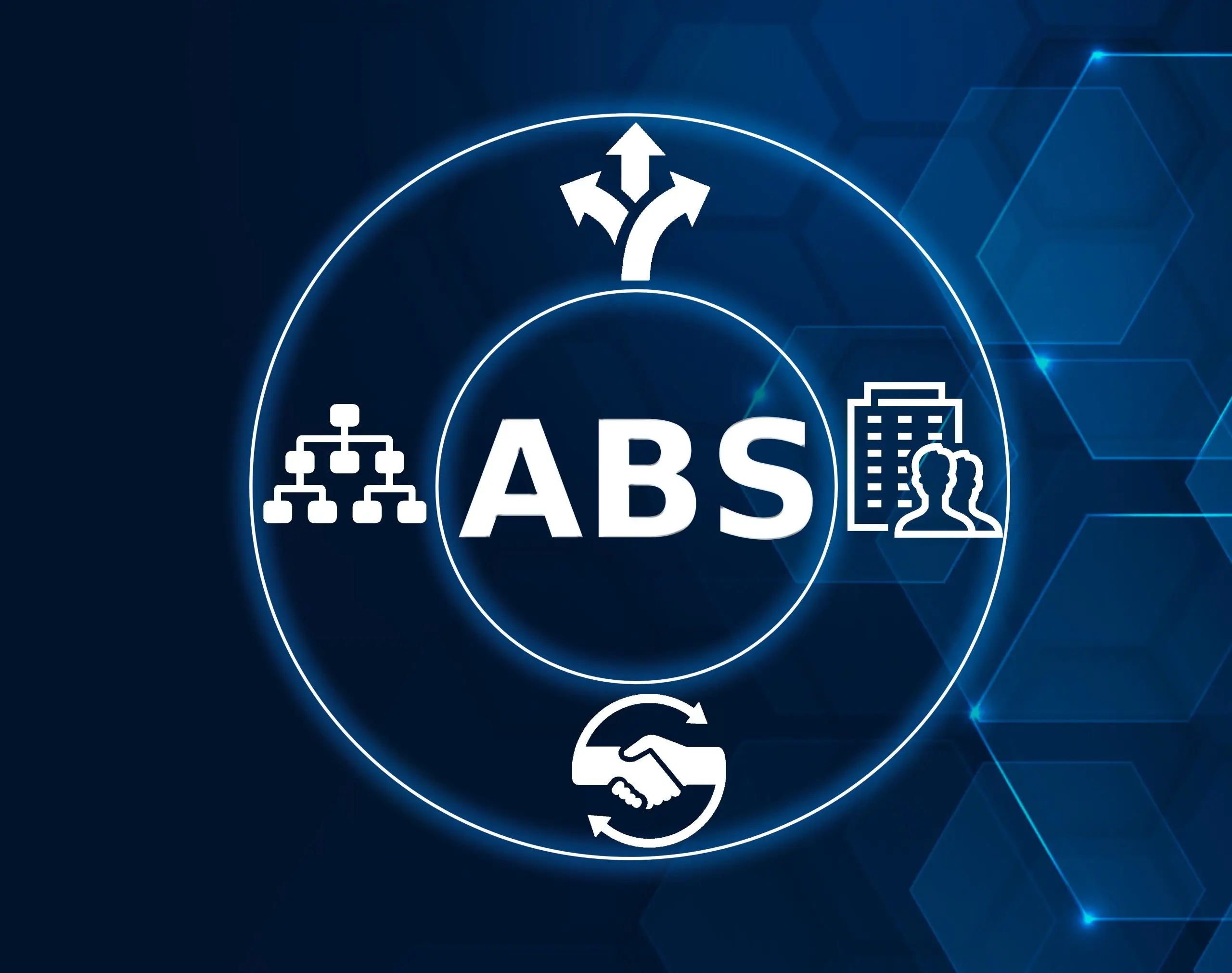Alternative Business Structure and Legal Lead Generation Opportunities
August 15, 2024 by Susan MohrAlternative Business Structure and Legal Lead Generation Opportunities
Alternative Business Structures (ABSs)
Ever since the advent of Alternative Business Structures (ABS), much debate has been over their impact. ABS is a new legal entity introduced by the 2007 Legal Services Act that allows non-lawyers to own and invest in law firms.

While many traditional law firms have made changes to adapt to market forces and cope with the threat of ABS, demonstrating their adaptability and resilience, some have not done so. The legal landscape has become more challenging for small firms in recent years.
In the current challenging legal landscape, some firms are turning to ABS as a strategic move to attract investment and enhance their profitability. ABS offers a significant advantage by enabling firms to provide a wider range of services, which can be a compelling factor for potential clients seeking more value for their money.
ABS also provides a high degree of operational flexibility for law firms. For instance, an ABS can recruit staff from diverse sectors and leverage technology to automate tasks traditionally handled by lawyers. This efficiency allows lawyers to focus more on client work, thereby enhancing the quality of service.
Another benefit of ABS is that it can allow firms to work with other organizations to provide legal services, offering clients a one-stop shop for all their legal needs. This can save time and money for the client by allowing them to avoid dealing with different law firms to get all of the advice that they need, making the process more convenient and cost-effective.
It’s crucial to note that ABSs are not a homogenous group. They vary in terms of non-lawyer ownership, with some having a significant non-lawyer stake, while others have minimal non-lawyer involvement. These differences make it challenging to make blanket statements about ABSs as a unified legal entity.
Non-lawyer Ownership of Law Firms
The legal profession is often seen as out of touch with modern business. This is partly because traditional structures see cloistered lawyers work their way up a lock-step system to become managing partners without having to show much real commercial acumen.
However, this is changing, and the rules are shifting. The American Bar Association has started nibbling around the edges of removing its strict prohibition against sharing fees with nonlawyers to boost productivity and encourage innovation. This move could mean that law firms could split their legal fees with, for example, an advertising company that led a potential client to them.
This could have huge implications for legal lead generation. It would mean that law firms could compete for clients based on cost rather than quality, leading to a race to the bottom as firms attempt to undercut each other by offering cheaper fixed-fee services. It could also lead to a shake-up in the sector as traditional law firms with deep expertise that dates back years are threatened by more agile new entrants.
While some commentators are concerned that this could lead to a “race to the bottom” where firms offer ever-cheaper fixed-fee services, others point out that it will allow them to take on more clients than they could otherwise. This is especially true for those working in specialist fields where more capital is required to invest in automation and turn legal services into commodities, such as bankruptcy and immigration.
Non-lawyer ownership of law firms is already legal in some jurisdictions. In 2020, Arizona launched a pilot program to allow ABSs to include nonlawyer investors and owners. Currently, the only requirement is that a firm be licensed as an ABS by the state in which it operates.
Allowing non-lawyer ownership of law firms has several benefits. The first is that it will allow law firms to attract capital investment. This will enable them to expand, upgrade infrastructure, and adopt new technologies. It will also give them access to a wider pool of talent. These resources will help them attract more clients and provide them with better service.
Non-lawyer Investments in Law Firms
Traditionally, law firms have only been owned and managed by lawyers. That’s changing. In a major shift, the legal industry has opened the door for non-lawyer ownership of law firms by introducing alternative business structures (ABS). These new business models allow for the collaboration of law and non-legal professionals or entities to promote innovation, efficiency, and holistic client service delivery.
Arizona became a trailblazer in 2021 by eliminating Rule 5.4 and establishing new legal alternative business structures that permit non-lawyers to invest in, own, and operate law firms. Since then, other states have started following suit, including Utah’s regulatory sandbox model.
The new structures allow for outside investment, facilitating growth and expansion and making capital investment more viable for law firm partners. In addition, the addition of seasoned business professionals can provide new skills and perspectives to enhance firm operations and client service delivery. These additions can also help to reduce costs and increase profitability.
Increasingly, consumers are seeking legal services from firms that can provide them with holistic solutions to their problems. This requires a broad range of expertise, from technology to marketing and business acumen. Often, these skills are not available within traditional law firms. In many cases, clients are willing to pay a premium for law firms that can deliver these services.
The cost of legal services is a significant barrier to access for low—and middle-income consumers. This is one reason why it’s so important for law firms to embrace innovative business practices and non-lawyer management.
As a result of these changes, law firms are opening themselves up to a new source of legal lead generation. Non-lawyer investors and owners can bring a wealth of marketing expertise, business experience, and financial resources that can boost law firm marketing efforts and improve client acquisition.
Legal Lead Generation Opportunities
Legal lead generation is attracting potential clients to your firm’s services. This can involve a range of strategies, including targeted online advertising, search engine optimization, and social media marketing. Legal lead generation aims to get prospective clients to develop an interest in your law firm and take action, such as visiting your website or contacting your firm.
To generate leads, you must first understand and optimize your sales funnel. The sales funnel is a conceptual model representing the client’s journey from awareness to engagement. By mapping your prospect’s buying journey and optimizing your lead generation tactics, you can increase the number of clients that convert to paying clients.
One of the most common and effective ways to generate leads for law firms is to establish your reputation as an expert in your field. This can be done through blog posts, infographics, podcasts, and videos. These content-based marketing techniques can help your prospects find you online and improve your search engine rankings.
Another popular method for generating leads is through pay-per-click (PPC) advertising. PPC is a highly targeted form of online marketing in which you pay only when a user clicks on your ads on search engines like Google. Creating effective PPC campaigns requires extensive keyword research, as well as constant monitoring and tweaking. To ensure the success of your campaigns, you should partner with a performance marketing agency with extensive experience in the legal industry.
Providing free consultations is another effective way for law firms to generate leads. This helps you build trust and confidence with your prospects, who are more likely to become paying clients in the future. You can offer free consultations through various channels, including Instagram stories, TikTok videos, and Q&A forums.
We offer a program called Skin in the Game, SIG for short. We provide leads or signed cases at our cost in return for a fee split upon the case’s resolution. We offer this program to lawyers seeking mass tort or personal injury signed cases. We are currently working on AFFF, PFAS, and MVA/PI campaigns for ABS law firms. If you are part of an ABS law firm, consider partnering with Mohr Marketing.
CALL 866-695-9058 OR USE OUR REQUEST A QUOTE FORM.
Susan Mohr
Mohr Marketing, LLC
CEO and Founder


Recent Posts
- How To Use Geofencing Advertising to Grow Your Practice
- AI Webtracker® Lead Generation Technology
- High Quality Vetted Roundup Leads Available
Categories
- AI and Lead Generation
- Business Financing
- Call Verified MVA Leads
- Compliance Program
- Lead Generation For Chiropractors
- Lead Generation For Criminal Attorneys
- Lead Generation For D&A Treatment Centers
- Lead Generation For Eye Doctors
- Lead Generation For Family Law Practices
- Lead Generation For PI Law Firms
- Lead Generation For Plastic Surgeons
- Leads For Healthcare Professionals
- Leads For Insurance Industry
- Legal Leads
- Legal Updates
- Mass Tort Leads
- Medicare and Medicaid Leads
- Merchant Funding Leads
- Online Marketing Strategies
- Pre-Settlement Funding
- Signed MVA Cases
- Tort Updates
Archives
Copyright © 1994-2025 Mohr Marketing, LLC. All Rights Reserved.


